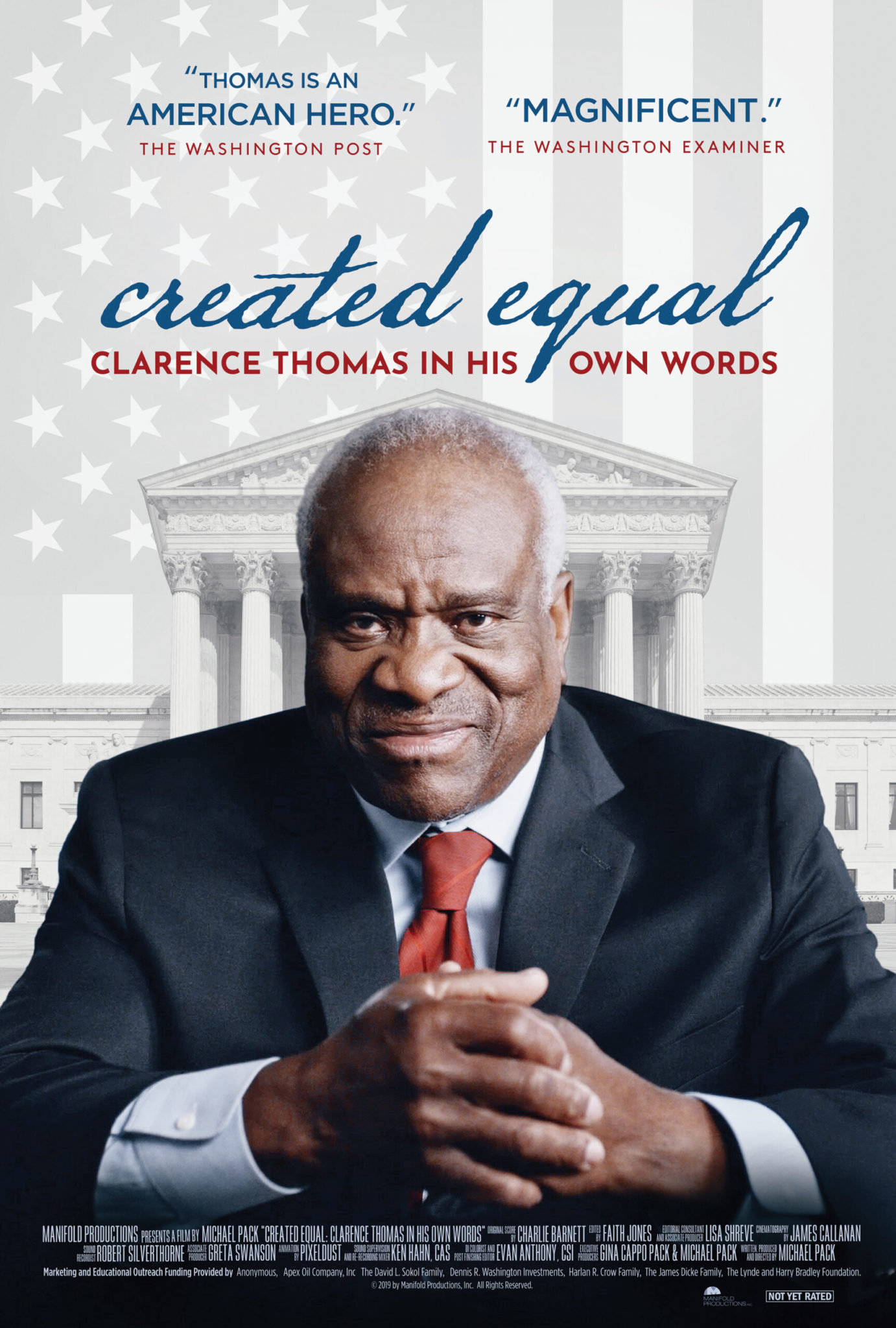
Courtesy of Manifold Productions
The William F. Buckley Jr. Program hosted a two-part event, on Monday and Tuesday, about the 2020 documentary titled “Created Equal: Clarence Thomas in His Own Words.” The Buckley Program screened the film on Monday and then hosted Director Michael Pack and Executive Producer Gina Cappo Pack on Tuesday evening.
The conservative-leaning documentary details the life of Justice Clarence Thomas LAW ’74, beginning with his poverty-stricken childhood in Pin Point, Georgia. Among other stories, Thomas describes his attempt at becoming a priest, his education at Yale Law School and how Martin Luther King Jr.’s assassination affected his political views. During the Q&A session, Pack and Cappo Pack discussed what prompted them to begin the film.
“We had heard from a mutual friend a few years ago that Justice Thomas was getting tired of having his story told by his enemies, essentially, people who didn’t agree with him,” Pack said. “He wanted to get a more balanced version of his story out there.”
Pack and Cappo Pack were originally going to create a more standard documentary, which would have included several different sources and perspectives. However, after talking with Thomas, they decided to go a different route.
For most of the film, Thomas talks directly to the camera, narrating the story of his life. The only other source who gets interviewed is Thomas’s wife, Virginia Thomas. According to Cappo Pack, the filming process was hard on Thomas.
“Just being interviewed was really hard, Michael asking [Thomas] nonstop questions. He gave us a lot of his emotional self, he was really generous with it,” Cappo Pack said.
In addition to the progression of his personal life, Thomas takes the audience through the metamorphosis of his political views.
When he attended the College of the Holy Cross, he hung around students who were “very radical and Marxist,” according to Virginia Thomas. During his time at Yale Law School, Thomas described himself as a “lazy libertarian.” Now, Thomas is considered one of the Court’s conservative judges.
Pack and Cappo Pack reflected on the things they learned about Thomas through the filmmaking process.
Cappo Pack described the limbo Thomas found himself in as he continued his education, not being able to go back to the life he had before but also not truly being accepted by his peers in higher education due to racism.
“One of the things that struck me was constantly … [Thomas] was kind of always perpetually seen as a traitor to one group or another,” Jasper Boers ’22, who helped host the event as the president of the Buckley Program, said during the Q&A.
Pack commended Thomas for his resilience despite these challenges and commented on how he refused to define himself a victim, despite growing up amid “real racism.”
Making the conservative-leaning documentary was a struggle at times. According to Pack, there were people who refused to work on it, such as editors and cameramen due to differing political views with the subject.
Amazon took down the documentary from its streaming service on Feb. 8 as well. Pack and Cappo Pack were confused by the choice, as it was still popular. They reached out to the online retail company for an explanation but did not receive a reply.
“There is hardly a level playing field between right-of-center and left-of-center documentaries,” Pack said.
When talking about the discrepancy between the conservative and liberal film industry, Pack referred to film schools. Film professors are often liberal progressives and communicate that to their students, resulting in liberal thoughts being nurtured and encouraged, according to Pack.
Meanwhile, Pack thinks that sometimes, conservative filmmakers rely too heavily on their content to provide value and overlook the art in filmmaking. He hopes that young conservative filmmakers will provide new, quality content to the industry.
“A lot of conservative documentary makers, even more than liberal ones, seem to think that just because they are conservative, that’s enough,” Pack said. “But they have to actually make a good film. And there’s precious few on the right.”
The Buckley Program was founded in 2010.
Alex Ori | alex.ori@yale.edu







